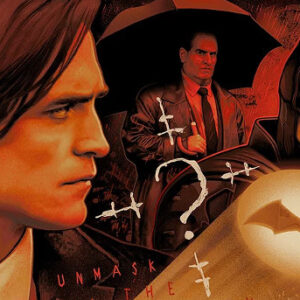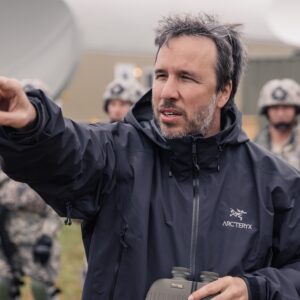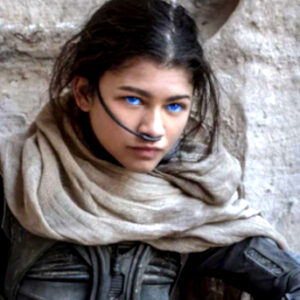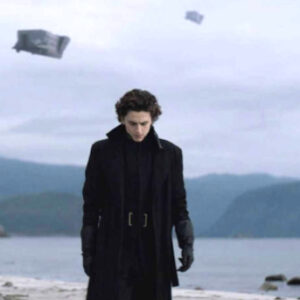Last Updated on August 2, 2021

One of my favorite films from this year’s Toronto International Film Festivals is making it to theaters this weekend, Denis Villenueve’s speculative sci-fi drama, ARRIVAL. A deeply emotional examination of mankind’s first contact with aliens, starring Amy Adams as a linguist tasked with finding a means to communicate with the beings, this is a highly atypical sci-fi outing, something which extends to the highly emotional score. Written by frequent Villeneuve collaborator Jóhann Jóhannsson (SICARIO), we got a chance to talk to the popular composer about his approach to his craft, as well as get some tidbits about his upcoming gig scoring Villeneuve’s BLADE RUNNER 2049.
Jóhann Jóhannsson

How does scoring an optimistic film like ARRIVAL compare to something grim like SICARIO?
Every film requires its own approach and that’s what’s fascinating about being a film composer. You have the opportunity to work with different moods and atmospheres, and create different soundscapes. With ARRIVAL, I was very inspired by the script and ideas. It’s a real speculative science fiction film about what happens when an alien species lands on earth. How do we communicate with them? So it’s very much about language and so I decided to use voices very early on. Choirs and vocals are a big element of the score. That was one of the first ideas that sparked the score.

Well, your score is as unique as the film in that it’s very much a first contact film but the approach is different from say, John Williams with CLOSE ENCOUNTERS OF THE THIRD KIND.
Well, I have tremendous respect for John Williams and that kind of composing, but I’m a totally different composer and work in a different way. I could never do what Williams does and I’m not interested in doing that because John Williams does it very well. I’m more interested in exploring sonic worlds and a sonic palette that’s idiosyncratic and has character and a bold, distinctive identity. I always try to look for something I haven’t heard in the cinema before and bring something new to the table.
Is Villeneuve very hands-on in the process?
It’s very much a collaboration. He gives me freedom but he knows what he wants, so we start the composing process early-on. I’m involved before filming in pre-production. We start talking about music in the pre-production phase and I read the script and they send me the concept art and pre-vis to give me an idea of the look and the feel and the mood of what they will film. So on ARRIVAL that was particularly important. One or two of the main themes were written during filming – one within the first week.
What can you tell me about your approach to BLADE RUNNER 2046?
Like I said, every film is different and every film poses its own challenge. This film in particular poses a huge challenge…to follow-up such a great film…a well-loved, well-respected film which is also a personal favorite of mine, as well as the score. I have tremendous respect for Vangelis as a composer and he’s someone who’s had a tremendous influence on my as a composer, especially in my early years. And I think, it’s very early in the process. They’re still filming and will be filming for some weeks if not months. I’ve already started writing and sending some ideas and we’re slowly finding it’s sound and it will be a process of research and discovery and experimentation, but everyone who’s working on this film is very aware of the legacy of the film, and myself as a composer is very aware of the legacy of the score. But it’s not a remake, its Blade Runner thirty years later, so it’s the same world but a different world. So things have changed.
Are you using any of the old themes?
Um, it’s really too early to tell and it’s something I probably wouldn’t be allowed to reveal, if we knew we were going to be allowed to do that…

As a film composer, who would you say your main influences are?
Film music is only one part of what I do. I divide my time between this and my own solo work. I don’t do many films – only one or two a year. The rest – I’m doing my own work and making films myself as well. But, film music has been an influence for a long time. I have certain composers that I gravitate towards, mostly from the sixties and seventies. People like Bernard Herrmann are a huge influence. Ennio Morricone is a genius, I love almost everything he does – especially his scores from the sixties and seventies but I’m mostly influenced by music that’s not film music – contemporary classical, electronic music, experimental, this whole wonderful world of music we have access to.
How is the process different when it comes to producing the score album?
I spend a lot of time on the score albums and making them work. I spend a lot of time in my studio re-working them, restructuring, emphasizing elements that may have been de-emphasized in the film because they clashed with dialogue. When I put out a score album, I want it to be a listening experience, something that works as an album in the ideal world.




















Follow the JOBLO MOVIE NETWORK
Follow us on YOUTUBE
Follow ARROW IN THE HEAD
Follow AITH on YOUTUBE